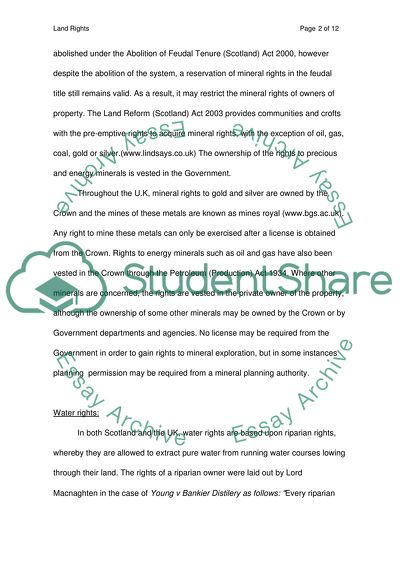Cite this document
(“Rights associated with land Essay Example | Topics and Well Written Essays - 2250 words”, n.d.)
Rights associated with land Essay Example | Topics and Well Written Essays - 2250 words. Retrieved from https://studentshare.org/miscellaneous/1549495-rights-associated-with-land
Rights associated with land Essay Example | Topics and Well Written Essays - 2250 words. Retrieved from https://studentshare.org/miscellaneous/1549495-rights-associated-with-land
(Rights Associated With Land Essay Example | Topics and Well Written Essays - 2250 Words)
Rights Associated With Land Essay Example | Topics and Well Written Essays - 2250 Words. https://studentshare.org/miscellaneous/1549495-rights-associated-with-land.
Rights Associated With Land Essay Example | Topics and Well Written Essays - 2250 Words. https://studentshare.org/miscellaneous/1549495-rights-associated-with-land.
“Rights Associated With Land Essay Example | Topics and Well Written Essays - 2250 Words”, n.d. https://studentshare.org/miscellaneous/1549495-rights-associated-with-land.


